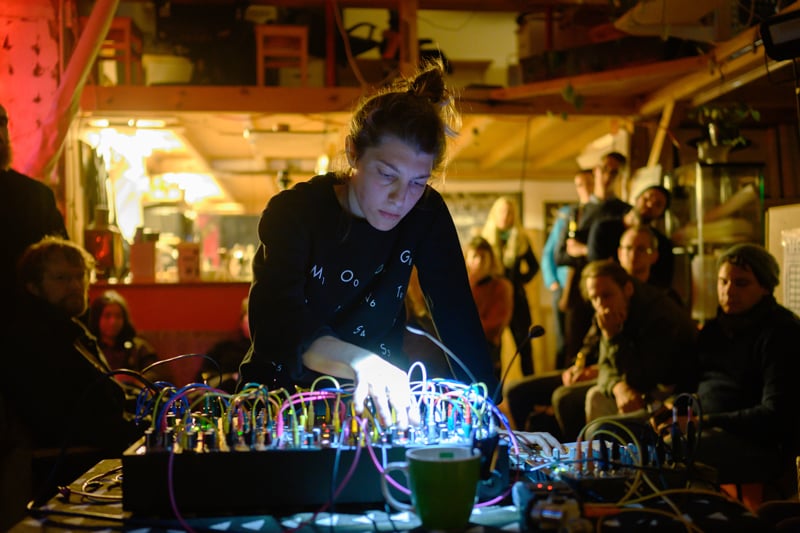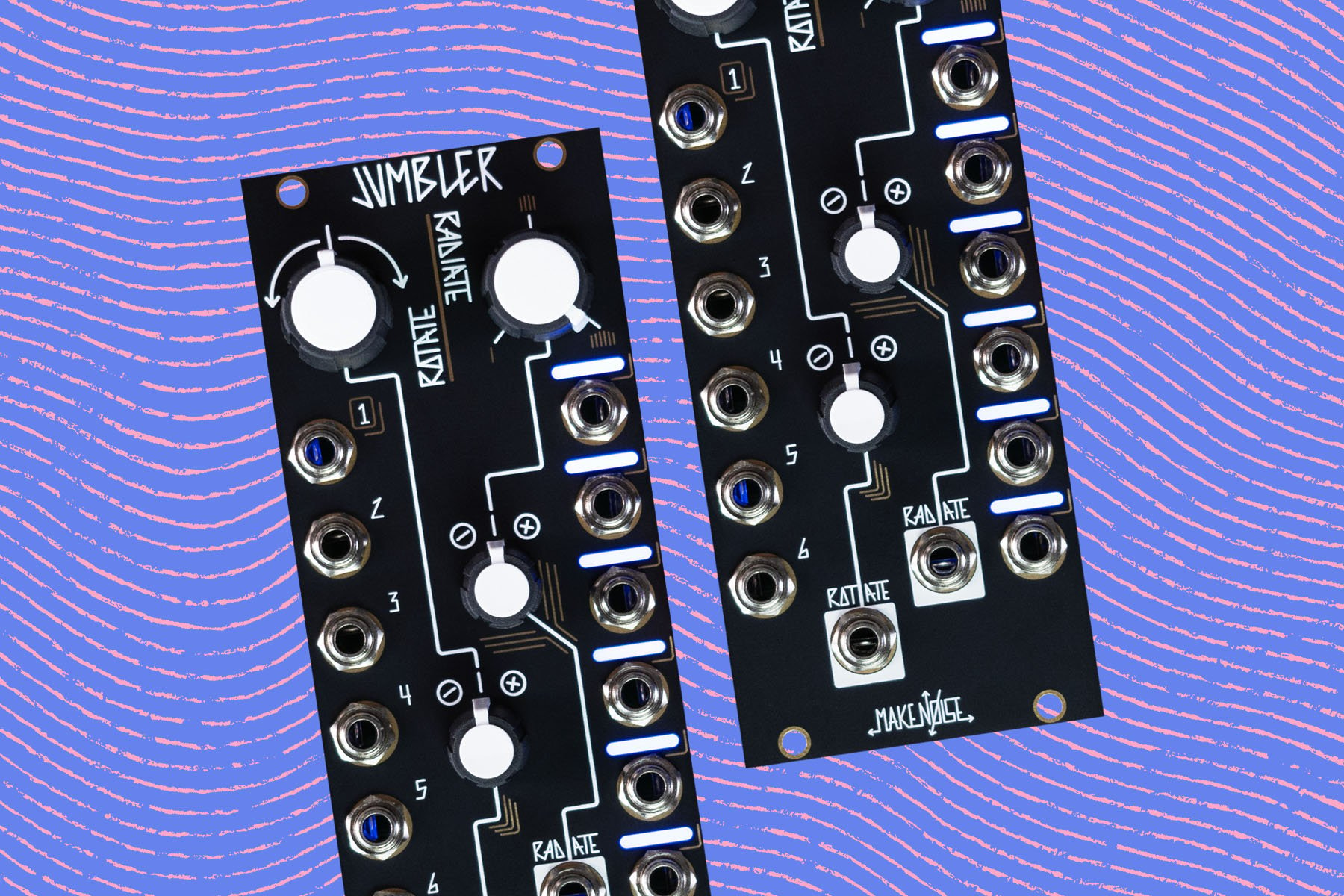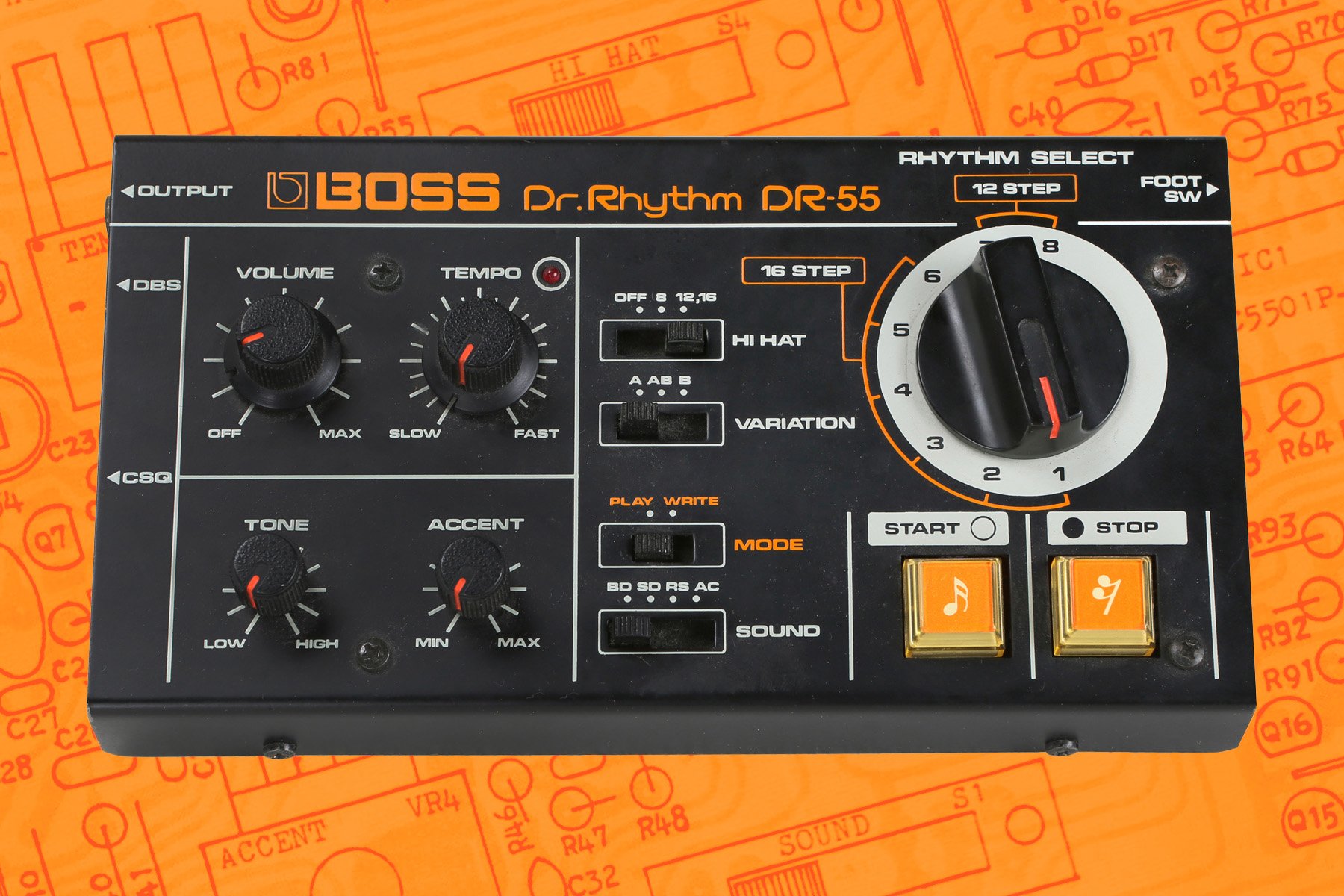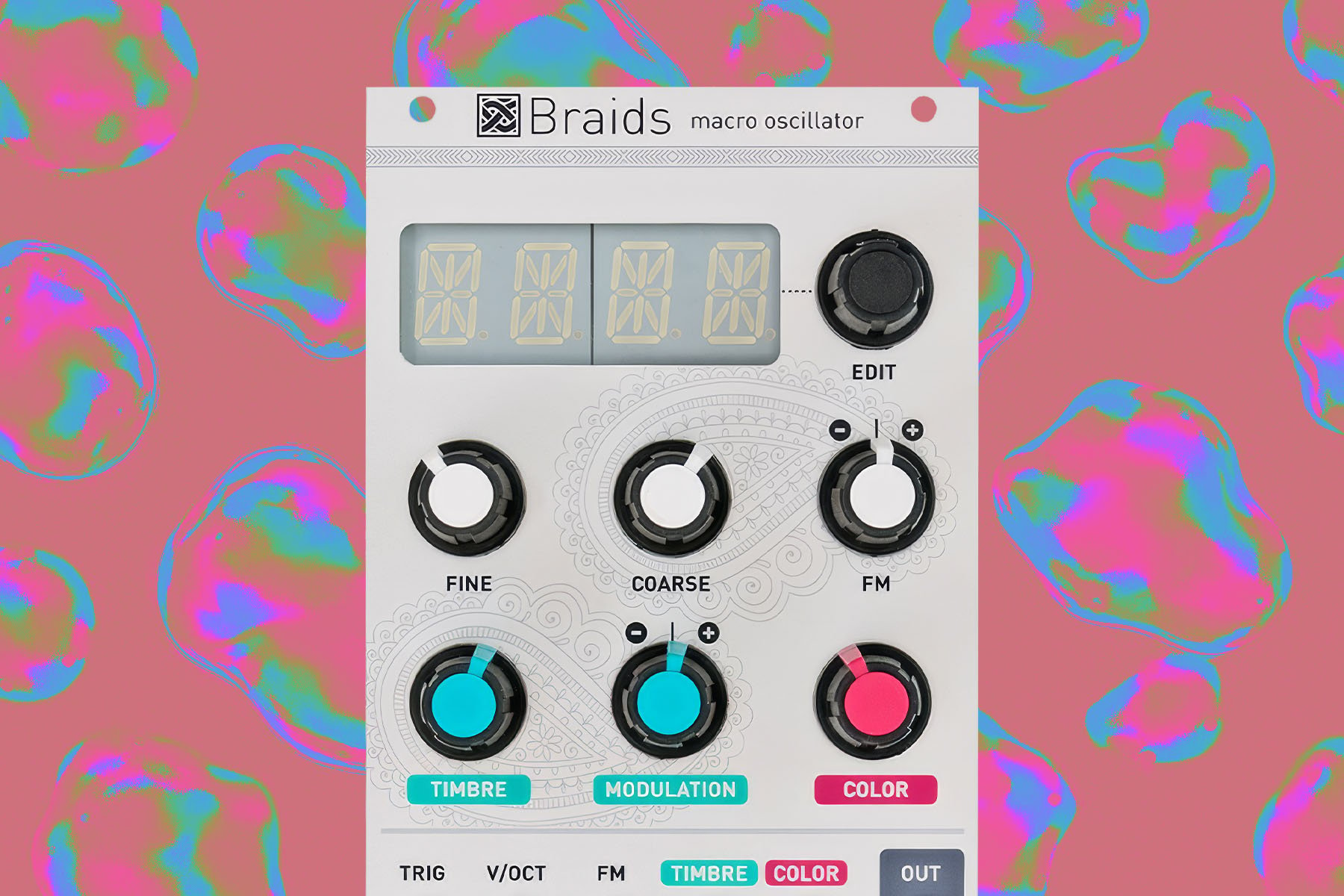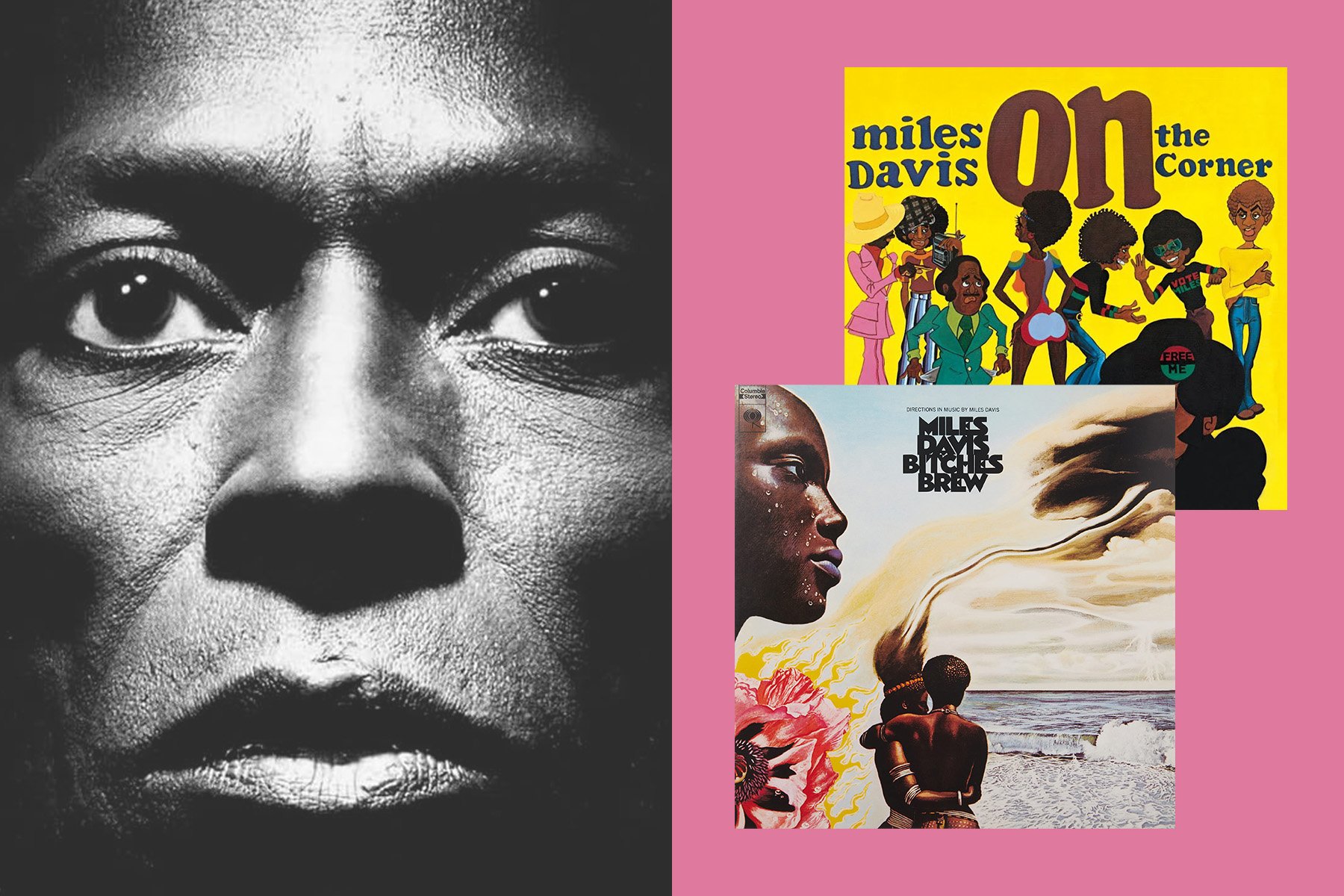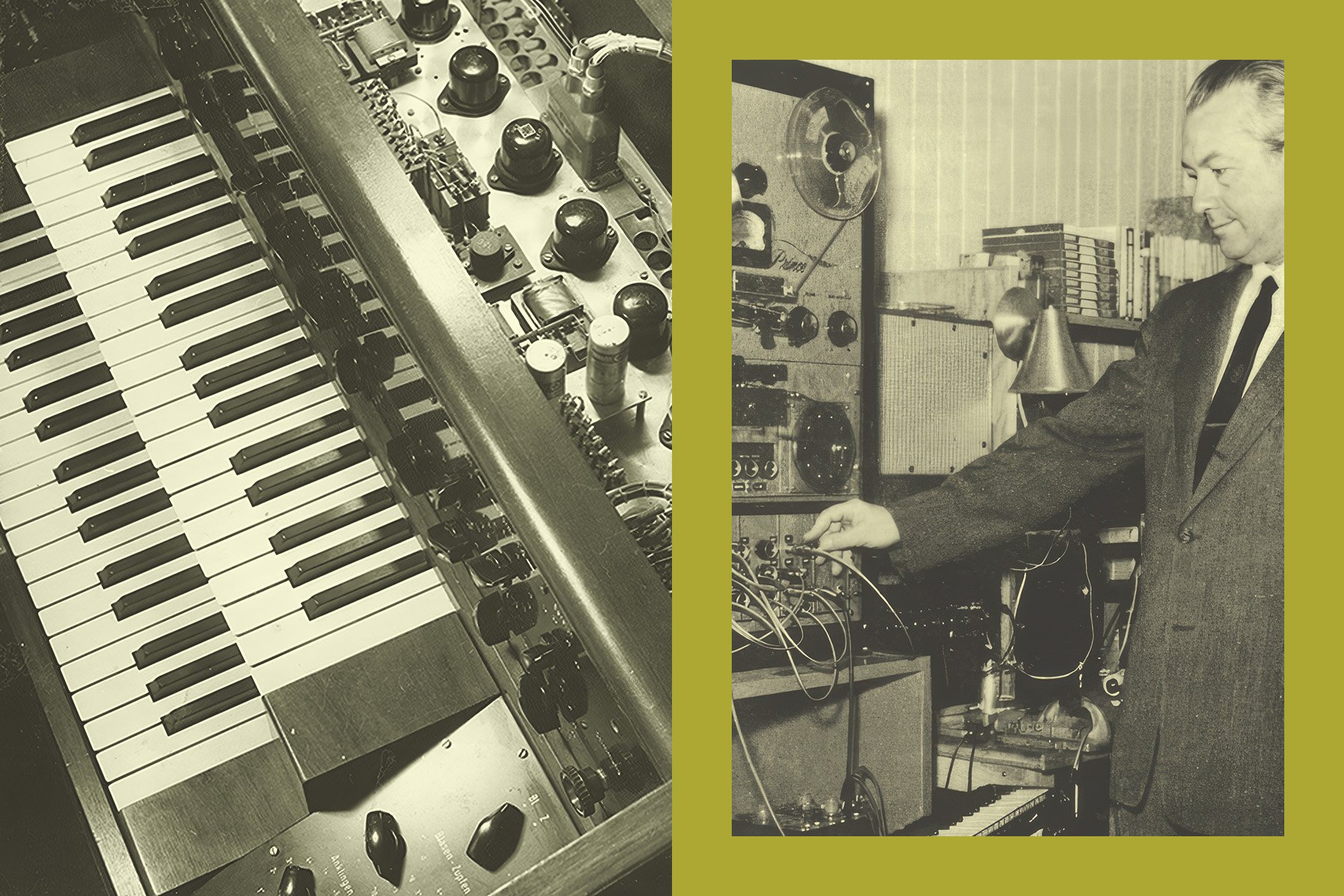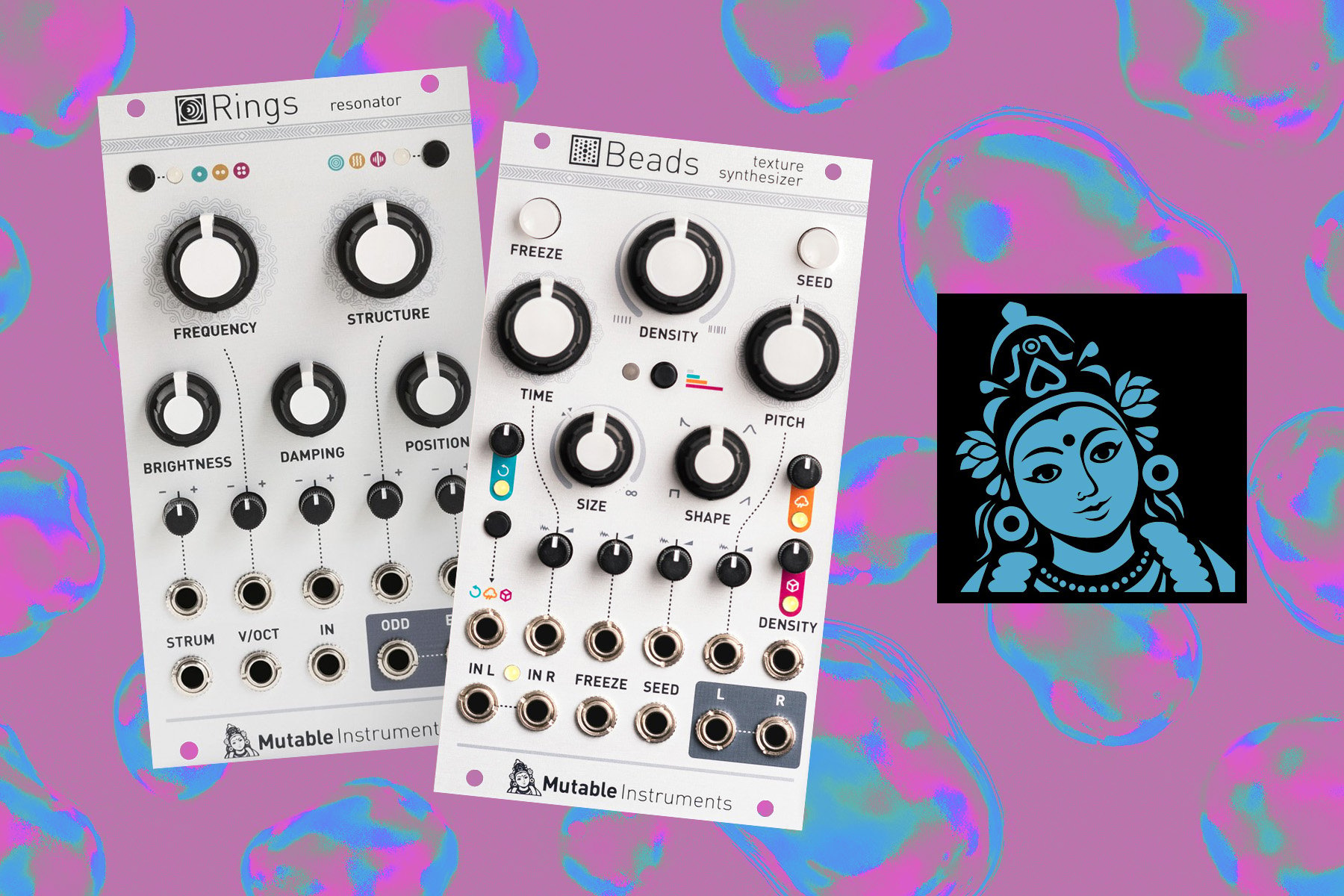Many of you interested in modular synthesizers are familiar with Bana Haffar. Originally from Beirut, Bana left a major mark on the modular synth community of Los Angeles, CA before she relocated to Asheville at the end of last year. She played an integral part in the conception and growth of the Modular On The Spot platform, which at this point has sprung out across the country. Today Bana is releasing her new record Genera on the legendary Touch label. Genera was recorded live at A/B Salon in Brussels earlier this year. Excited about the release, we’ve caught up with Bana to find out more about her current projects, future aspirations, life in Asheville, and more.
Eldar Tagi: To my understanding, you’ve been involved in music since a very young age. Can you please talk about your background?
Bana Haffar: Yes, like many of us, I was forced into piano lessons at a young age. My piano teacher was narcoleptic so I asked my parents to switch to violin at 8 years old in hope of a more lively experience. The teacher I ended up with was an extremely rigid Polish woman with zero tolerance for pitch deviation and launched me into the world of bi-yearly classical music examinations, both in violin and music theory. I’m grateful for the discipline those experiences instilled in me but the rigidity in teaching was extremely limiting.
ET: The process of making electronic music can be much more isolated than playing in a band. What motivated you to replace your bass guitar with a modular synthesizer, and what particularly attracted you to the instrument?
BH: I played and toured with bands for upwards of 10 years. I mostly worked as a hired gun so my relationship to the music was somewhat mercenary. I didn’t know any different at the time. I didn’t think that I could make music of my own. Maybe that’s a product of the music schools I went to. They didn’t teach us how to think independently, instead we were taught mimicry and technical proficiency. The modular synthesizer turned me on to two pivotal ideas; the underground and the rethinking of sound. The idea of an underground scene, one that operated totally independently from the musical industrial complex I was working in was an awakening. I finally found my people. The rethinking of sound through non muscle memory, non repertoire based exploration was also hugely liberating. It gave me the confidence to explore my own voice in an abstract way. Something I wasn’t able to do on bass.
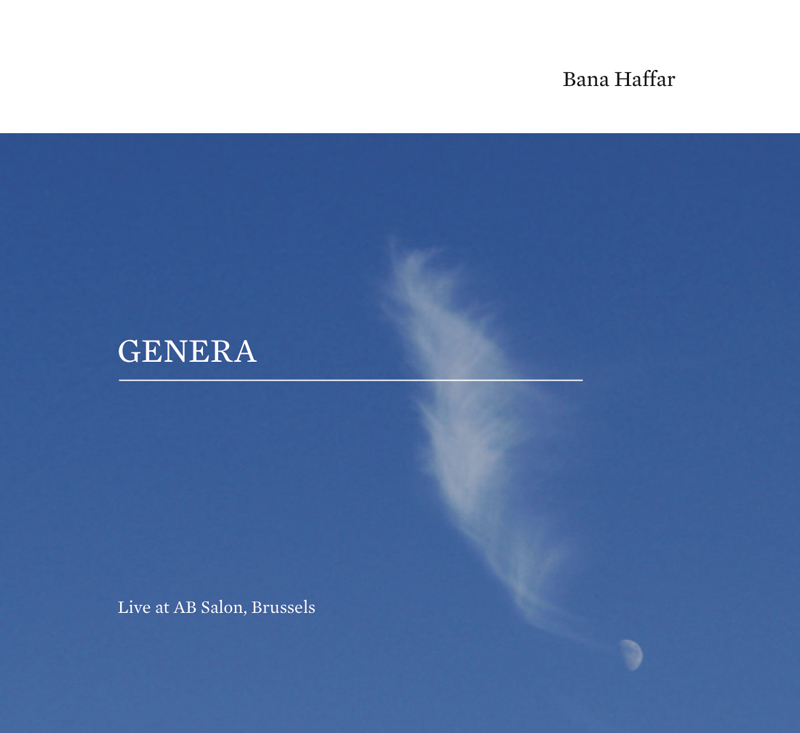
ET: Your new record “Genera,” recorded live in Brussels, just came out on Touch. What setup did you have at the time of recording?
BH: I used a Make Noise 7U bus case with a Make Noise René 2, Tempi, WoggleBug, Morphagene, QMMG, tELHARMONIC, Maths, Serge Resonant EQ, Mutable Instruments Shades, and Clouds. I also used field recordings made using a Zoom H6 and a pair of LOM mikroUsi microphones, and a GE 35383 Micro Cassette Recorder that was gifted to me a month prior.
ET: Do you change your setup often? If so, what guides your decision making?
BH: Yes, I’m constantly reconfiguring my case. For this particular piece, I knew I needed to compress a system into two rows for ease of travel. The size limitation forces judicious choices. I’m trying to lean towards being more intuitive with my configurations instead of thinking in an overly technical way. There are too many possible outcomes to consider with different configurations so I’m trying to adopt a more heuristic approach, adjusting as needed.
ET: Is the nature of your compositional process driven by planned structures, improvisation, or is there a sweet middle spot?
BH: I spend a lot of time scaffolding a performance patch, building specific zones of exploration. The idea is to build as much fluency with the configuration and patch as possible in order to feel enough confidence and agility to abandon the plan if necessary.
ET: Does the environment play an important role in your work? Since you’ve recently relocated from Los Angeles to Asheville, how does this affect your creative process?
BH: Definitely. Asheville is a much quieter city than LA for one thing. I’ve been a lot more focused on ecological sounds, drawing inspiration from new and unfamiliar bird song, cicadas, rain storms, snow, melting ice and rivers. I also have a dedicated studio now, something that would not have be feasible in LA. Also, I don’t go out much here so I’m having to rely on my intuition, self reference, and self motivation a lot more... a big change from going out to shows almost every night of the week in LA.
ET: What are the ideal settings for you to work on music?
BH: The ideal creative setting is a shifting target. The “cabin in the woods” fantasy I’m living in small town Asheville is good for introspection and self reference but artists also need a diverse community and feedback. LA was rich in both. This has been a challenge to adjust to. I like the idea of changing environments depending on the project or creative phase you’re in, as opposed to a static studio setting.
ET: Where are you looking for inspiration?
BH: Ecology, architecture, and craft. Appalachia has a rich history of craft; weaving, pottery, woodworking, glass making, to name a few. I’m in awe of the dedication and mastery that I’m witnessing in this region. I’m trying to grasp these teachings and bring them into my work, viewing synthesis through the lens of craft, giving it a sort of materiality.
ET: What particular pieces of equipment in your setup do you feel you couldn’t do without? What makes them special to you?
BH: I’m feeling quite ambivalent about gear these days. I’m trying to move away from gear attachment and arrive at a place where my creative ideas can be actualized on any number of things. Just listen to a Second Woman album, or Autechre, that’s all Max!
ET: Are you presently taking on any new artistic challenges? What are they?
BH: I’ve been commissioned by The Black Mountain College Museum in Asheville to compose a piece for Third Coast Percussion in Feb 2020. This is my first commission and the first time I compose for something other than the modular. I’m excited to explore the crossing points between the world of percussion and modular synthesis.

